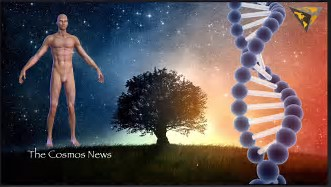Human immortality, how possible?
.png) Immortality is the ability to live forever,recover feom even the deadliest of wounds and injuries,stay young forever,much like what we see in movies today
Immortality is the ability to live forever,recover feom even the deadliest of wounds and injuries,stay young forever,much like what we see in movies today
Humans since te ages have been driven by the quest for survival and passing on their legacy and since the ages, the only feasible way of achieving immortality has only been through producing offsprings to bear your name and carry on yoir will and legacy.
But since the advent of science,questions has been raised,then coming foward to tghe 21st century, with the help of science, immortality could actually be a possibility.Certain scientists, futurists, and philosophers have theorized about the immortality of the human body, with some suggesting that human immortality may be achievable in the first few decades of the 21st century. Other advocates believe that life extension is a more achievable goal in the short term, with immortality awaiting further research breakthroughs. The absence of aging would provide humans with biological immortality, but not invulnerability to death by physical trauma; although mind uploading could solve that issue if it proved possible. Whether the process of internal endoimmortality is delivered within the upcoming years depends chiefly on research (and in neuron research in the case of endoimmortality through an immortalized cell line) in the former view and perhaps is an awaited goal in the latter case
Here is another form of immortality
Cellular rejuvenation,
This is when People will have the option of looking and feeling the way they did at 20 for the rest of their lives, or opt for an older look if they get bored. Of course, everyone will be required to go in for age rejuvenation therapy once every decade or so, but that will be a small price to pay for near-immortality.
This may sound like science fiction, but Aubrey de Grey thinks this could be our reality in as little as 25 years. Other scientists caution that it is far from clear whether and for how long science can stall the inevitable.
De Grey, a Cambridge University researcher, heads the Strategies for Engineered Negligible Senescence (SENS) project, in which he has defined seven causes of aging, all of which he thinks can be dealt with. (Senescence is scientific jargon for aging.)
De Grey also runs the Methuselah Mouse prize for breakthroughs in extended aging in mice. The purse of the M Prize, as it is called, recently grew beyond $1 million.
LiveScience recently spoke with de Gray about his idea of living longer, and perhaps forever.
.png)
Another form is the long term immortality ,and this one is from googe itself, they plan to incoperate biological life with non-biological processes,to give rise to human androids, More recently, Kurzweil, speaking at the Exponential Finance Conference in New York, outlined his views on the future and why, in the space of just a couple of decades, we’ll likely be thinking in terms of non-biological procedures when it comes to prolonging the life of a person. Basically, Kurzweil reckons we’ll be dealing with hybrid humans at this point and even saving our minds to the cloud.
Artificially enhancing the human brain would be possible with help of tiny robots made from DNA strand that would be able to connect directly to an even more complex cloud and further augment our lives. And Google will certainly have a role in designing part of that cloud.
“We’re going to gradually merge and enhance ourselves,” he said. “In my view, that’s the nature of being human – we transcend our limitations.”
And all of this is set to happen within the next 30 years or so according to Google’s new Director of Engineering, Ray Kurzweil. Prior to joining Google, Kurzweil was an award-winning scientist, writer and inventor. Following his appointment, BGR highlighted the following quotes from his book, The Singularity is Near.
In the 2040s, humans will develop “the means to instantly create new portions of ourselves, either biological or nonbiologicial” so that people can have “a biological body at one time and not at another, then have it again, then change it, and so on.” (The Singularity is Near, Page 258)
By the late 2020s, we’ll be able to eat as much junk food as we want because we’ll all have nanobots injected into our bodies that will provide us with all the proper nutrients we need while also eliminating all the excess fat we’ll gain from eating 20 bags of Doritos every day. (Page 304)
By 2010, “computers… will become essentially invisible: woven into our clothing, embedded in our furniture and environment.” Although the concept of “wearable” computers has been tossed around quite a bit, we’re a long way off from a time when Samsung (005930) will be able to sell its first Galaxy Sweater model. (Page 312)
At an undetermined point in the future, we’ll be able to beam ourselves into another person’s brain and experience the world as they see it, just as in the film Being John Malkovich. (Page 316)
By 2033, “virtual prostitution” will be legalized. (Page 318)
By the mid-21st century, people will evolve into “software-based humans” who will “live out on the Web, projecting bodies whenever they need or want them, including holographically projected bodies, foglet-projected bodies, and physical bodies comprising nanobot swarms.” (Page 325)
It’s a pretty crazy set of predictions about where we’re heading. It also raises all kinds of ethical questions about life and the nature of reality itself –– would you actually want to be immortal?
Another form of immortality that is being speculated on is the merging of our genome with the genes of immortal species like the jelly fish which can regenerate lost limbs and appendages, and recover from deadly injuries